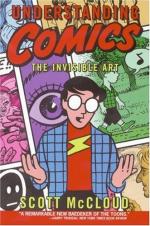
|
| Name: _________________________ | Period: ___________________ |
This test consists of 5 multiple choice questions, 5 short answer questions, and 10 short essay questions.
Multiple Choice Questions
1. In the time after printing was invented, when words and pictures appeared together, how were they combined?
(a) Words always appeared larger.
(b) Words and pictures co-mingled.
(c) Words and pictures stayed separate.
(d) Pictures always appeared larger.
2. Which style of painting was an honest expression of the internal turmoil of artists?
(a) Impressionism
(b) Minimalism
(c) Art deco
(d) Expressionism
3. What kind of combination treats words as integral parts of the picture?
(a) Duo-specific
(b) Word specific
(c) Montage
(d) Inter-dependent
4. What combination has both words and pictures that send the same message?
(a) Duo-specific
(b) Montage
(c) Word-specific
(d) Picture-specific
5. What is the concept of uniting different art forms associated with different senses?
(a) Marriage
(b) Synaesthetics
(c) Phenomenology
(d) Consolidation
Short Answer Questions
1. The combination of printed art and literature has traditionally been thought of as a style for which audience?
2. The bold lines, obtuse angles and heavy blacks in Dick Tracy were meant to suggest a _________ of adults.
3. Aside from the central figure in an image, where else can emotion be depicted?
4. Which of the following creators is often regarded as a storyteller who says something through comics and controlling their medium?
5. Comics printing was superior on which continent?
Short Essay Questions
1. What problem results from people believing that comics is a new form of media?
2. In Chapter 7, how does McCloud see, or define, art?
3. What happened after the birth of Expressionism?
4. Why do people think words and pictures together is more simplistic than either art individually?
5. How can backgrounds indicate invisible ideas such as emotions?
6. How can an artist depict emotion in a comic?
7. Describe the difference between the additive primaries and the subtractive primaries.
8. In panels rich with images, why would an artist add words?
9. What happened to comics after the invention of printing?
10. Describe the process of creating art using the six-step path.
|
This section contains 739 words (approx. 3 pages at 300 words per page) |

|




